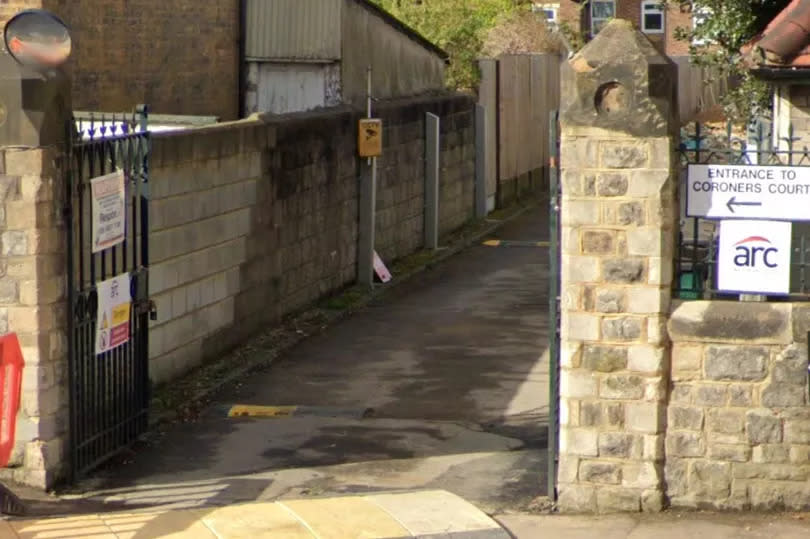

A man died in hospital after he was put to sleep without proper consent and his body was overloaded with fluids, a court heard. Gary Ash, 62, had a cardiac arrest, likely caused by the build up of fluid in his lungs and resultant low oxygen levels, at Queen’s Hospital in Romford on June 25 2019, East London Coroner’s Court heard at an inquest held in April this year.
Gary, who had long-standing ulcerative colitis (an inflammation of the bowel and rectum) was seen by a surgeon at the hospital on May 31, 2019, after waiting two weeks for rectal bleeding and anaemia (low red blood cell count).
The surgeon advised the investigation could be carried out under general anaesthetic, without following the Barking, Havering and Redbridge University Hospitals NHS Trust policy on seeking consent for general anaesthesia.
The inquest found, had Gary been ‘carefully consented’ by an anaesthetist, he would have accepted deep sedation as an effective and safer form of anaesthesia. This, however, did not happen, and he was put to sleep on June 2,4 2019, ‘in the absence of valid consent’. Shortly after the procedure he showed signs of serotonin syndrome (heightened levels of the brain chemical).

The syndrome was not recognised by doctors at the time, only by experts with the benefit of hindsight, and instead Gary was diagnosed with neuroleptic malignant syndrome (a rare but potentially life-threatening reaction to anti-psychotics). He was admitted to critical care, where, due to excessive sweating, he was prescribed a large amount of intravenous fluids.
But the inquest found these fluids were not carefully monitored and reviewed, nor were they reduced when the sweating decreased and the urine output was low. More fluids were given by nurses ‘with no clear rationale’.
By 12.30pm on June 25, 2019, Gary had a positive fluid balance of 4.9 litres. The normal range is between two to three litres per day, but the high level was not noted as a red flag.
At the same time, Gary’s blood oxygen level was decreasing and his need for oxygen was increasing. Dantrolene (a muscle relaxant drug) was administered, along with additional fluids, during which time Gary had a cardiac arrest and died. The inquest found that the cardiac arrest was ‘likely’ caused by pulmonary oedema and resultant hypoxaemia (fluid on the lungs and lack of oxygen).
The narrative conclusion was recorded as: “Mr Ash’s death was contributed to by an adverse drug reaction following a general anaesthetic that he was not correctly consented for, and by an over administration of fluid whilst in the critical care department.”
Expert’s concerns
In a prevention of future deaths report to the Academy of Medical Royal Colleges (AOMRC), Area Coroner for East London, Nadia Persaud, cited evidence from an anaesthesia expert who shared concerns about the misuse of Dantrolene and and the dangers presented by mixing certain drugs as part of anaesthesia.
The four main concerns were:
Management of the condition neuroleptic malignant syndrome, including the inappropriate, off licence, use of Dantrolene.
The role of Dantrolene in the development of pulmonary oedema in the presence of intravenous fluid overload.
The potential interaction between Dantrolene and Labetalol in relation to the reduction of cardiac contractility.
The lack of knowledge around the diagnosis of serotonin syndrome and the risk of it developing following the combined use of Fentanyl and Ondansetron as part of anaesthesia.
‘We are sorry’
Since Gary’s death, Barking, Havering and Redbridge University Hospitals NHS Trust says it has developed a standard procedure for deep sedations and general anaesthesia for endoscopic procedures, and updated its pre-op assessment procedures, with more detailed assessments with criteria for consultant anaesthetist review.
The Trust says it has also reviewed its consent policy and trained staff on the importance of the process being a two-way conversation with patients and loved ones who are able to raise concerns. It has also reviewed the fluid loss monitoring process to make sure it is more closely undertaken.
The changes come as the Trust waits for the response from the Academy of Medical Royal Colleges, who the coroner’s report was sent to in the hope they can influence clinical management and medication use across the NHS.
Matthew Trainer, Chief Executive, Barking, Havering and Redbridge University Hospitals NHS Trust, said: “We are sorry Gary Ash didn’t receive the level of care he should have. We’d like to reassure his family lessons have been learned and we have implemented changes to reduce the risk of this happening again.”
The Academy of Medical Royal Colleges was approached for comment but did not respond at the time of publication.
Got a story or a court case we should cover? Please email callum.cuddeford@reachplc.com or WhatsApp 07580255582
Don’t miss out on the latest crime stories from across London. Sign up to MyLondon’s Court & Crime newsletter HERE
EMEA Tribune is not involved in this news article, it is taken from our partners and or from the News Agencies. Copyright and Credit go to the News Agencies, email news@emeatribune.com Follow our WhatsApp verified Channel









